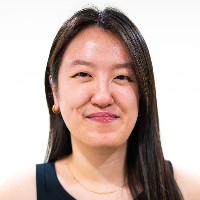Ronda Lo

Assistant Professor
Faculty of Arts
Department of Psychology
Toronto, Ontario
rondalo@torontomu.ca
Office:
(416) 979-5000 ext. 554861
Expert In
Bio/Research
Dr. Ronda Lo is an Assistant Professor at Toronto Metropolitan University. Before arriving at Toronto Metropolitan University, she was a SPARQ Media Fellow (Postdoctoral Scholar) at Stanford SPARQ, in the Department of Psychology at Stanford University. She completed her doctoral training at York...
Click to Expand >>
Click to Expand >>
Bio/Research
Dr. Ronda Lo is an Assistant Professor at Toronto Metropolitan University. Before arriving at Toronto Metropolitan University, she was a SPARQ Media Fellow (Postdoctoral Scholar) at Stanford SPARQ, in the Department of Psychology at Stanford University. She completed her doctoral training at York University, earning a PhD in Psychology (area: Social-Personality) and Quantitative Methods Diploma. During this time, she also worked as a statistician at SickKids Research Institute. She completed her undergraduate education at the University of Toronto, Mississauga.
As a cultural psychologist, Dr. Lo has a broad interest in people as "culturally-shaped shapers"; how are people shaped by their cultures, and how do people think about and shape the cultures around them? To this end, her program of research employs a wide variety of theoretical and methodological approaches across different disciplines (both within and outside of psychology; e.g., culture-gene coevolution) to test these two broad questions. Her current streams of research fall loosely under three different themes: (1) the extent to which culture and diversity shape social, cognitive, and biological mechanisms that underlie social interactions; (2) culturally minoritized individuals' experiences navigating cultural clashes in their everyday worlds (e.g., healthcare, education, workplace, criminal justice system); (3) the role of media in shaping and intervening on people's ideas and attitudes towards culture, race, and diversity.
As a statistician and teacher, Dr. Lo is passionate about training the next generation of statisticians, scholars, and data-minded individuals. Her courses are built around experiential learning, influenced by her own hands-on experiences from working as a statistician within academia and industry. Her laboratory training focuses on building not just strong statistical and programming skills, but also greater perceived independence, confidence, and self-efficacy.
Click to Shrink <<
As a cultural psychologist, Dr. Lo has a broad interest in people as "culturally-shaped shapers"; how are people shaped by their cultures, and how do people think about and shape the cultures around them? To this end, her program of research employs a wide variety of theoretical and methodological approaches across different disciplines (both within and outside of psychology; e.g., culture-gene coevolution) to test these two broad questions. Her current streams of research fall loosely under three different themes: (1) the extent to which culture and diversity shape social, cognitive, and biological mechanisms that underlie social interactions; (2) culturally minoritized individuals' experiences navigating cultural clashes in their everyday worlds (e.g., healthcare, education, workplace, criminal justice system); (3) the role of media in shaping and intervening on people's ideas and attitudes towards culture, race, and diversity.
As a statistician and teacher, Dr. Lo is passionate about training the next generation of statisticians, scholars, and data-minded individuals. Her courses are built around experiential learning, influenced by her own hands-on experiences from working as a statistician within academia and industry. Her laboratory training focuses on building not just strong statistical and programming skills, but also greater perceived independence, confidence, and self-efficacy.
Click to Shrink <<